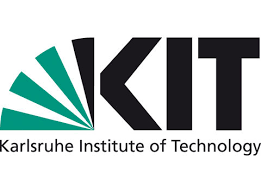Karlsruhe Institute of Technology: New impetus for energy storage research in Europe
In order to achieve its climate goals, the European Commission presented the “European Green Deal” in December 2019. At the center of the political initiatives is the energy sector, which is to be converted through a consistent move towards electricity generation with renewable energies. But that alone is not enough, says Professor Stefano Passerini, Director of the HIU: “In order to be able to use fluctuating renewable energy sources such as wind and sun on a large scale, we must also provide appropriate energy storage.” Establishment of coordinated research and development work in Europe – which is now to take place, among other things, in the new StoRIES (Storage Research Infrastructure Eco-System) research consortium. Researchers from all over Europe with different research focuses will work on hybrid energy storage technologies in close cooperation with industry. “We want to accelerate the development of new, innovative and market-ready storage solutions and have created a common ecosystem for this,” says Passerini, who coordinates the project. “The pooling of know-how opens up synergies that are often underestimated. With the ‘European Green Deal’, politicians are giving us an immense homework that we can only do together. ”Work will officially start on November 1, 2021. innovative and market-ready storage solutions accelerate and have created a common ecosystem for this, ”says Passerini, who coordinates the project. “The pooling of know-how opens up synergies that are often underestimated. With the ‘European Green Deal’, politicians are giving us an immense homework that we can only do together. ”Work will officially start on November 1, 2021. innovative and market-ready storage solutions accelerate and have created a common ecosystem for this, ”says Passerini, who coordinates the project. “The pooling of know-how opens up synergies that are often underestimated. With the ‘European Green Deal’, politicians are giving us an immense homework that we can only do together. ”Work will officially start on November 1, 2021.
Accelerated development with intelligent methods
The most important technological goal of StoRIES is the development of future energy storage systems of all kinds. The research consortium is primarily focusing on hybrid storage systems. “We need high-performance, long-lasting, sustainable and cost-effective solutions,” says Dr. Myriam Gil Bardají, who, as a science manager at KIT, oversees the activities of the European Energy Research Alliance (EERA) and helped found StoRIES. “However, not a single energy storage technology is currently flexible enough to meet all of these criteria. A combination of different technologies is therefore required. In this way we can use advantages and compensate for disadvantages. “
Through shared access to first-class research infrastructures and services, research obstacles should also be removed and innovations driven forward. The main focus of research is aimed at improving material properties for current and future applications and optimizing hybrid energy storage systems. “The aim is also to shorten the development times for new technologies by a factor of 10,” says Dr. Holger Ihssen from the Brussels office of the Helmholtz Association, which contributed to the establishment of the new research consortium. “We want to bring new innovations to market faster so that renewable energy technologies can also become competitive more quickly.” This is made possible, among other things, by modern supercomputers, Automation technologies and the use of artificial intelligence (AI) for targeted material development for energy storage. In addition, StoRIES also focuses on the analysis of socio-technical and ecological aspects. “In order to reduce the environmental impact, the new storage technologies are optimized right from the start for the careful use of raw materials and their recyclability,” says Ihssen.
Transdisciplinary training for tomorrow’s specialists
The new alliance of energy storage research and industry also wants to take responsibility for training the next generation of researchers, engineers and specialists. In addition to training for companies and universities as well as courses for young scientists, this training is to be supplemented by ecological, legal, economic and social aspects relating to energy storage. “For the energy transition to be successful, we not only need the right technologies, but also an understanding of the non-technical aspects – for example, questions of public consent, the legal framework and economic efficiency,” says Dr. Olga Suminńska-Ebersoldt, science manager at the HIU and one of the initiators of StoRIES.
The new consortium consists of technology institutes, universities and industry with a total of 17 partner institutions and 31 associated participants from 17 countries, all of whom have a comprehensive background in all energy storage technologies (electrochemical, chemical, thermal, mechanical and superconducting magnetic storage). The members of the European Energy Research Alliance (EERA) and the European Association for Energy Storage (EASE), who form the core of the new ecosystem, will be there. StoRIES is funded by the European Commission as part of the Horizon2020 program initially for 4 years with almost 7 million euros.

